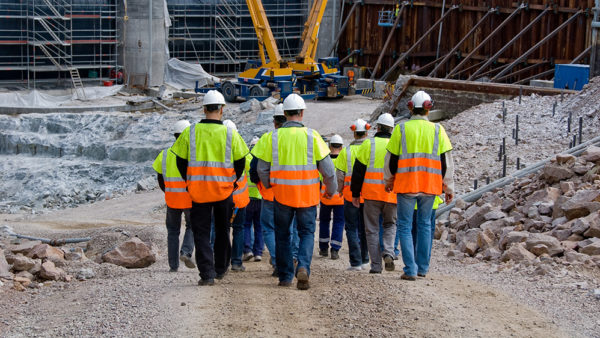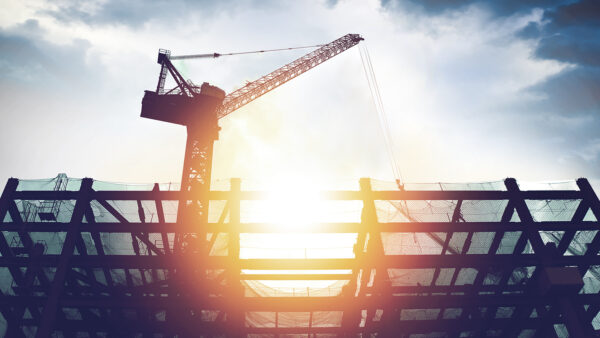
Image: Dreamstime
Public confidence in construction is key and there’s a lot the sector can learn from the aviation industry, says Chris Blythe.
On any big construction site the number of people on site who are on the payroll of the big name on the door probably represents no more that 10%, if that. There could be up to 20 different payrolls working on the site: a curse or a blessing, depending on your point of view.
In the professional end of our industry, more and more people are giving up the wage-slave existence and taking the opportunity to pick and choose the work they want to do, and who they want to do it with. It might not always pay the top rate, but what is money when you are working in a manner at odds with your personal values?
This disconnect between how people want to behave and what happens when all the corporate stuff takes over is at the heart of the culture issues referred to by the Hackitt report and must surely be the reason why Dr Barbara Lane, one of the Grenfell inquiry’s expert witnesses, said that “any construction professional” would have known this was not right.
What is a construction professional? Does the Lane observation include anyone who earns a living from the industry or is it restricted to having a string of letters after your name – or is it determined by how you behave?
I recently had the pleasure of doing a skills test on an airline pilot to renew his rating to fly a single-engine aircraft. He has a licence but no letters after the name. His approach to the test was testament to the culture and professionalism in the industry. The culture is what drives the right behaviours.
Construction professionals should need to demonstrate that they too have specific competencies in critical areas and not just assume the “licence” they got 20 years ago covers everything. Clocking up CPD hours and gaming the CPD system to follow the rules is not right and paradoxically it is unprofessional as well.
Demonstrating competence
There are, though, similarities between construction and aviation. The aviation industry is very fragmented. It is full of subcontractors – from pilots to baggage handlers to cabin crew to ground staff – in many different locations, working in an extremely dynamic environment.
While construction has made great strides with worker safety, there is, as Grenfell shows, some way to go when it comes to systemic safety. For aviation, safety is what gives the public confidence and that attention to safety makes it the safest form of transport in the world.
There is cost-cutting and some of it seems tedious, but the issue of whether you get a free sandwich is not a safety issue. As the equipment becomes more sophisticated, so does the need for constant updating. Hackitt is asking the same questions. If you want to design, build and operate high-risk buildings, why shouldn’t you demonstrate you are competent to do so?
Perhaps another quality required of the professional is humility as well.
This column is dedicated to 90-year-old regular Construction Manager reader Ralph Chapman
Comments
Comments are closed.











At heart what Chris Blythe says is correct. But, there is key difference between construction and flying – if a pilot does a poor job he or she will probably get killed, in construction someone else suffers. Thus whilst pilots have every incentive to be professional, construction is reliant upon the honesty and ethics of individuals.
With regards to Grenfell it would be interesting to know how many certified or professionally qualified individuals worked on the cladding project and if any of those individuals have had their accreditation reviewed or revoked by the certifying body or institute. And, whether those bodies have been pro-active in identifying these people or will only act if a complaint is made against an individual.
Paul, you are quite correct, being professional in construction relies upon the individual having a sense of ethics and integrity.
The problem is, individuals are subject to pressure, being manipulated, and ultimately fired.We only have to look to the NHS to what happens to those who step out of line, and the blacklisting by the ‘Consulting Association’ is a warning that those who have done so, can be treated very harshly.
The industry really needs regulation, and enforcement of those regulations that exist. It is quite ridiculous that it seems to rely on people being prepared to create trouble for themselves (and suffer what may be significant consequence) to stop situations like Grenfell occuring.
I say that as an Architect working on a project highlighting deficiencies in the fire design, that 22 months after presenting to the lead designers the issues found in a review I carried out on BS 9999 compliance, has seen little attempt by the consultants to take ownership of their design packages, most it seems hoping ‘the contractor will sort it out through shop drawings’.
If I’ve had anything, its faint praise for sticking my neck out, if not simply an attitude that I’m probably wrong so should be ignored.